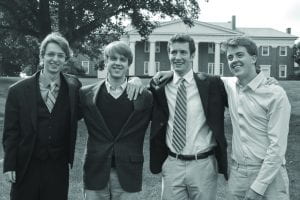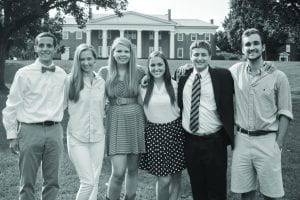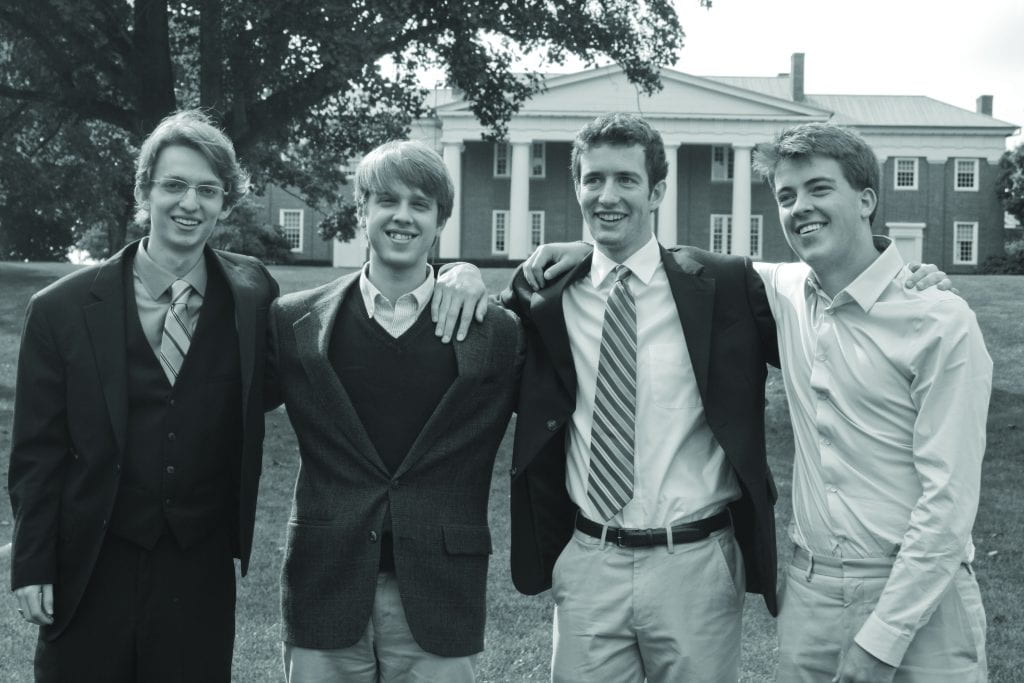
Mason McClay–Cento Writer
Finally entering the college atmosphere has provoked several speculations to swirl amidst my cluttered mind, but no other consideration has been as important as the following: What activity will allow me to feel the most sophisticated?
After a short conversation with sophomore Gray Whitsett, it became clear to me that nothing other than the Student Government Association (SGA) would fuel my sense of purpose and integrity to the level of importance that I demand as an egodriven first-year.
However, after losing my first two elections as a representative, my biased focus has turned away from the services and resources that SGA promises for Centre, and is heated towards the inherent problems that spread elusively throughout the association, almost like the decades-old stench that effuses from Nevin’s stairwell.
Two boundaries to SGA’s development have been made apparent to me through observation: regulations that inhibit creative qualities in campaigners, thus reducing the creative force that could be present in SGA; and the trend of vacant upperclassmen positions that are readily being filled by ambitious first-years.
“One bad thing about the SGA election process is that you can’t base your campaign off of running the flame. If you were to run the flame for every vote, think about how many votes you would get!” sophomore Jeffrey Podis said. “For that is the greatest form of bribery.” Alas, such platforms are absolutely prohibited from being utilized by potential representatives. Ridiculously enough, each campaigner is limited to $25 for campaign purposes.
The selection process aside, the lack of upperclassmen representatives is a strange to consider. What is an especially curious statistic is that the number of firstyears who ran for representative this year, 17, is equivalent to the combined number of sophomores, juniors, and seniors who decided to compete for their respective positions.
Moreover, last year saw no seniors running on the initial ballot, and a total of eight vacant positions in all of SGA. As a first-year, these statistics illustrate a universe of incentive for students to leave SGA after their original year of interest.
Now, what might be provoking such an incentive? Are representatives subject to torture? And if so, is it mostly psychological? Although a bit of periodic mental torture builds character, I believe the true motivator is derived from other issues.
Whitsett attributes the loss of representatives to conflicts in priorities. “Most students travel abroad during their their sophomore year and decide not to run for that reason. It’s much more difficult to contribute to SGA while you’re overseas,” Whitsett said.
Although he makes an excellent connection, it seems unlikely that, considering the breadth of our student body at Centre, sophomores being compelled to travel abroad during the spring are the cause of the immense lack in upperclassmen participation. Valiant effort but even the awkward turtle is more convincing of its existence.
Most other theories have also lacked a similar compelling quality to them; except for the theory of senior Johnny Kher. “People in SGA just realize that they can’t do much of anything. I know a lot of people will get mad at me for this. They also aren’t held accountable for what they proposed in their platforms,” Kher said. Although the bitterness seething within my soul wants to agree with Kher, a likely reason for this phenomenon that strikes my mind is one rooted in my developing experience concerning the transition from high school to college.

As an incoming student, the sense of community is beyond compelling. It is a driving force that evokes a sense of purpose in a student, and an overwhelming need to contribute something unique, be it through academics or art, or various clubs and athletics. That being said, what most first-years lack is a niche. The unprecedented atmosphere of college is one of variety and exploration, and it is an environment that allows first-year students to contribute to various activities in search of clarity and purpose. As an organization that guarantees both, it is no surprise that SGA doesn’t fail to attract first-years. It is just as the semesters progress that students are pulled into positions that may be considered equally, less, or more important than involvement in SGA.
Rather than a lack of upperclassmen participation, the cause of this phenomenon seems to be an abundance of the sense of exploration and of the hope of novel experience: something that spikes early, and then finds its own equilibrium. All things considered, it’s plain to see that even with a set of problems SGA hasn’t failed to garner immense support. It’s certain that eventually these issues, when noticed, won’t hesitate to provide their own unique purpose for the Association and the students it serves.
